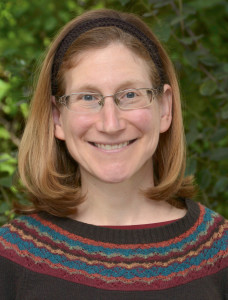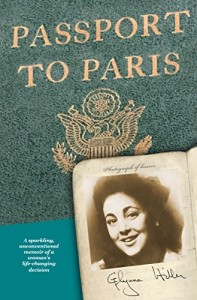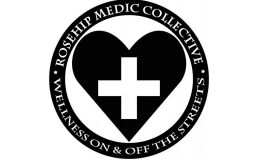The Lilith Blog
June 12, 2018 by Yona Zeldis McDonough
Isolated Mothers, Searching for Miracles
The reader knows by page one of Queen for a Day that Mimi Slavitt’s three-year-old son is autistic, but if anyone told her, she wouldn’t listen, because she doesn’t want to know—until at last Danny’s behavior becomes so strange even she can’t ignore it. After her son’s diagnosis, Mimi finds herself in a world nearly as isolating as her son’s. Searching for miracles, begging for the help of heartless bureaucracies while arranging every minute of every day for children who can never be left alone, she and her fellow mothers exist in a state of perpetual crisis, “normal” life always just out of reach. In chapters told from Mimi’s point of view and theirs, we meet these women, each a conflicted, complex character dreaming of the day she can just walk away.
Taking its title from the 1950s reality TV show in which the contestants, housewives living lives filled with pain and suffering, competed with each other for deluxe refrigerators and sets of stainless steel silverware, Queen for a Day portrays a group of imperfect women living under enormous pressure. Maxine Rosaler talks to Fiction Editor Yona Zeldis McDonough about the true-life experiences that led her to write this book. (more…)
- No Comments
June 11, 2018 by Marina Goodman
Why I Stopped Covering My Hair After Almost 20 Years
It was the Saturday night before Thanksgiving. My husband and I were planning on having a fun night out at Foxboro before traveling to see family for the holiday. I wondered: should I wait till after Thanksgiving and not deal with my family’s reaction? But no, I was ready now.
So with that, I left the house without my hair being covered for the first time since I walked home from my wedding, nineteen and a half years ago. The sensation of the icy November evening air going through my hair was delicious.
Back in college, I had noticed that while Jews from all streams of Judaism went to dinner at the Kosher Dining Hall, it was primarily the Orthodox students who refrained from going to parties afterwards. While I had no intention of becoming Orthodox back then, the integrity of those students’ behavior led me to include Orthodoxy in my soul-search while studying abroad in Israel, looking at it along with Reform and Conservative Judaism.
- 2 Comments
June 7, 2018 by admin
Mazel Tov to Lilith’s Literary Staff
Major moments for two Lilith staffers and book authors this week has us rejoicing—and we’re sharing the good news.

First, Ilana Kurshan, Lilith’s book reviews editor, has won the Sami Rohr prize for Jewish Literature from the Jewish Book Council for “If All the Seas Were Ink: A Memoir.” As the council’s reviewer wrote of her tour-de-force literary and Talmudic memoir, “Due to Kurshan’s deft explanations of Talmudic personalities and principles… Readers will be inspired by Kurshan’s resilience and renewal, with the Talmud by her side.” We couldn’t agree more–Kurshan’s book is deeply literary in the best way.

Also this week, Lilith’s Managing Editor Naomi Danis got a superb write-up in the New York Times Book Review for her children’s book “I Hate Everyone,” with critic Marisha Pessl describing the story in glowing terms: “The book reads like a version of Whitman’s barbaric yawp. It’s wildly alive with the girl’s unchecked bursts of word and emotion. The way she grasps at and simultaneously rejects love, wanting to be both acknowledged and left alone, is universal and timeless.”
- No Comments
June 7, 2018 by Sarah M. Seltzer
“Do You Know What a Fascist Is?”
For parents of young children, daily life revolves around the dance between bonding and separation. It causes us a great deal of anxiety, this constant leaving and returning. We tell our children comforting things like “mommy always comes back,” and fret about keeping that promise. It’s hard, this reality, this learning curve. But we are the privileged ones who live safely, out of the gruesome reach of Immigration and Customs Enforcement (ICE) and the prison system. For other families just like ours but with different luck, each day brings the possibility of brutal separations without clear end.
So how can the rest of us allow the government, in our name, to wrench families apart?
- No Comments
June 6, 2018 by Yona Zeldis McDonough
What Did Your Grandparents Do to Mine?
 After breaking her hip in a serious accident, Eleanor Ritter’s mother, Rose, a Holocaust survivor now living in New Jersey, suddenly starts talking about her harrowing childhood in Poland and the taboo subjects she has refused to discuss for half a century—even speaking in long-forgotten Polish. Around the same time, Eleanor learns that the parents of her nine-year-old son’s soccer teammate, Tadek, are Catholics from Poland.
After breaking her hip in a serious accident, Eleanor Ritter’s mother, Rose, a Holocaust survivor now living in New Jersey, suddenly starts talking about her harrowing childhood in Poland and the taboo subjects she has refused to discuss for half a century—even speaking in long-forgotten Polish. Around the same time, Eleanor learns that the parents of her nine-year-old son’s soccer teammate, Tadek, are Catholics from Poland.
As Eleanor becomes fixated with digging into the histories of both her mother and Tadek’s family, her obsession strains her already difficult relationship with Rose, as well as her marriage to Nick, an IT technician who is himself caught up in preparing for the feared Y2K turn of the millennium.
Eleanor starts flirting with the soccer coach, ignoring her 12-year-old daughter’s growing rebellion and her son’s misery when, messing up several games, he becomes the team pariah. Meanwhile, the “sure-fire” tech stock that Eleanor bought behind Nick’s back is losing money. Even as her quest nourishes an odd friendship with Tadek’s mother, it forces Eleanor to face the unavoidable questions: For how many generations can guilt carry on? And: What did your grandparents do to my grandparents?
Hawthorne, the author of the award-winning Ethical Chic: The Inside Story of the Companies We Think We Love and seven other books about business, consumers and social issues, talks to Fiction Editor Yona Zeldis McDonough about her journey from fiction to fact and then back again.
- No Comments
June 5, 2018 by Yona Zeldis McDonough
Love, Seduction and Survival—and Always, Paris
In 1950, Glynne Hiller, 26, goes to Paris with her husband, Joe, and her three-year-old daughter, Cathy, so they can all study French in the City of Light. But after a year, Glynne leaves Joe. She doesn’t love him—in fact, she questions whether she’s ever been in love—and she is looking for a more liberated life. Saucy and beautiful, Glynne charms one man after another, including the movie star Jean Gabin. Then she meets a man named Maurice and her whole understanding of love changes. Hiller, now 94, describes this transformation in the memoir Passport to Paris. She talks about her life and writing with Fiction Editor Yona Zeldis McDonough. 
YZM: Your father, an Egyptian Jew, moved your family from England to America in 1939; did he have a sense of what was coming?
GH: My father started a cotton mill with his brother in Guatemala, before the war started. Both of my brothers volunteered to fight: Eddie, the eldest, in the RAF (Royal Air Force). Max went into the artillery force. Both survived.
Meanwhile, Sally and I, separately, came to America. I came alone, and on the second night, we all came on deck were told we mustn’t make a single sound because there was a German U-boat in the vicinity. And everybody, even the children, were absolutely mum. We all cooperated. And they were already unloading the little lifeboats boats. It was very scary, I have to tell you.
- No Comments
June 4, 2018 by Eleanor J. Bader
This Radical Medical Collective Ministers to Protesters
Almost a decade ago, a group of healthcare activists in Portland, Oregon, formed the Rosehip Medic Collective, with the original intent of providing emergency medical care to people attending progressive political events, protests and direct actions. As part of this work, they’ve offered intensive trainings––a 20-hour immersion in advanced first aid––so that people who either lack the resources to obtain medical attention or who feel unsafe in traditional medical settings might have access to basic information, advocacy, and support.

The collective’s members—many of them Jewish and most LGBTQ—include Emergency Medical Technicians, registered nurses, wilderness first-responders, herbalists, naturopaths, acupuncturists, and teachers. This diversity of experience has led them to a range of Portland events. Individual members also provide care to people living on the street, to IV drug users in harm-reduction settings, and in free clinics. And some Collective members were present at the 2017 Standing Rock encampment formed by North Dakota’s native community in opposition to the Dakota Access Pipeline.
Rosehip Medic Collective member Eva Irwin spoke to Eleanor J. Bader by phone in early May about the group’s work and evolution.
Eleanor J. Bader: Let’s start with some history. How, when, and why did the Collective form?
Eva Irwin: We basically coalesced as a Collective in the aftermath of the Republican and Democratic conventions of 2008. At both conventions, protesters met tremendous repression. The police violence served as a crucible for us as individuals.
From the beginning—we incorporated in 2008—we’ve included people with and without medical certifications and licenses. Early on, we were EMT heavy, and many of us had gone to wilderness first-responder trainings. Some of us knew a lot about acupuncture and herbs; others were experts in naturopathic medicine. A few of us had been street medics before, with an earlier incarnation of Rosehip called Portland Street Medics, so we came into the Collective with a variety of backgrounds.
The idea was that we wanted to do action/activist medicine. We understood that many communities have to create their own medical infrastructure, taking care of themselves, because of racism, sexism, homophobia, or transphobia. Many of us in the collective have not felt safe accessing conventional emergency medical services (EMS). This led us to do a research project on tried-and-existing alternatives to EMS. One group we profiled was Hatzolah—a global Jewish volunteer ambulance organization which basically recognized that specific communities with specific needs do not always get their needs met by the larger society. Hatzolah was a response to this, a community-created service to care for community members, broadly speaking.
- No Comments
June 1, 2018 by Rochelle Distelheim
A Quiet Revolution (Part 4 of “Sadie in Love”)
All this week, in the grand tradition of Victorian periodicals, Lilith will be serializing an excerpt of Sadie in Love, the debut novel from 96-year-old former magazine editor Rochelle Distelheim. Look out for new installments every day this week.
Sadie in Love: Part 1| Part 2 | Part 3 | Part 4
Thanks God, the following week was quiet, a good time to think up final plans for her first organizing march, only one week to go. How many marching ladies to make a good showing for the watchers? Free soda pop, popcorn, to keep the audience in the park for speakers at the end. Get a permit for using the streets. Would the city send policemen for just-in-case accidents?
Mrs. Pomerantz called fighting to vote a quiet revolution. Easy to say, hard to do. So far, no one was smart enough to make a revolution to explode up the old way of doing things without someone, lots of someones, getting bumped up.
Sadie made a list: Print up banners, papers for handing out, people should know why women were being cheated, don’t blame George Washington. Find drums or trombones or some noisy marching music, find chairs for speeches at the end. Balloons. Confetti. Clean cloths, bandages, aspirin.
- No Comments
May 31, 2018 by Rochelle Distelheim
The Dance King of Riga (Part 3 of “Sadie in Love”)
All this week, in the grand tradition of Victorian periodicals, Lilith will be serializing an excerpt of Sadie in Love, the debut novel from 96-year-old former magazine editor Rochelle Distelheim. Look out for new installments every day this week.
Sadie in Love: Part 1| Part 2 | Part 3 | Part 4
She looked good – a pity Herschl wasn’t here to see her – thanks to Klein’s Emporium, Mitzi’s make-up tricks, and not-so-reliable electric light bulbs strung around the hall.
Her new earrings whooshed a satisfying sound against the lace collar of her silk taffeta shirtwaist. Her corset was also new, bought the day her mirror told her she’d lost three pounds, maybe more. Mitzi, helping her get dressed, had pulled hard at the corset strings until Sadie hollered, “Enough!”
“You’re sure ample, Hon, but interesting.” Sadie asked what ample meant, and Mitzi made a circle of thumb and forefinger.
- No Comments
May 31, 2018 by Chanel Dubofsky
Do We Need to Be Reading Those “Dirty” Anne Frank Pages?
If, like me, you were in the cult of Anne Frank as a young person, you read her diary, and every other book published about Anne, over and over, and when you were finished, you went looking for more.
For many years “more” meant various scandals and controversies over Anne’s legacy and imaginative works about her. But in May, researchers found two new pages in the diary. Because of its fragile condition, the original diary itself is photographed in order to assess how it’s being impacted by the wear and tear of time (to avoid damage, it’s only taken out of storage every ten years). While handlers were examining the book, the two pages, which had been covered by brown paper, were unearthed.
No one knows how to keep a diary a secret like a teenage girl, which you know if you’ve ever been one. There’s no question that Anne didn’t want anyone to find these pages‑—she covered them up herself, after all. She describes them as “spoiled,” and uses them to list a number of dirty jokes, as well as conversations with imaginary friends, and some discussion about sex education, including mention of her father seeing houses of prostitution while in Paris.
The published version of Anne Frank’s diary that won the world over was revised by Otto Frank, and in editing, he removed not only sections in which Anne referenced her own sexuality, but those that depicted himself and his wife in a less than positive light. These new pages haven’t been sanitized at all. The references to sex in them, Frank van Vree, director of the Netherlands Institute for War Holocaust and Genocide Studies told The Telegraph, make it clear that “Anne, with all her gifts, was above all also an ordinary girl.”
The Franks went into hiding in early July 1942, and Anne’s “spoiled” pages are dated September 18th, 1942. Barely two months into what would ultimately be twenty five months spent behind the bookcase at 263 Prinsengracht in Amsterdam, Anne was learning to cope with the stress of being contained, the charge of maintaining constant silence at the risk of discovery and almost certain death. While the new content portrays a curious young woman interacting with sexuality— her own and that of others, it’s important to remember that they were authored under circumstances that were in no way “normal.”
If you’ve read Anne’s diary, you know that she was both an ordinary and an extraordinary person. If you read the diary as a teenaged girl, you might have understood her fear that it would be discovered, or that she would be separated from it (Otto Frank did threaten to take it away from her at one point), and although we have learned a tremendous amount about her and the world she inhabited, do we really need to be reading these new pages? Should we even know that they exist?
The diary itself was found after the inhabitants, including Anne, were discovered by the SS and taken to the Westerbork labor camp, and later, Auschwitz and Bergen Belsen, where she died. There’s a sturdy argument to be made that it was completely justifiable to publish the abandoned diary, that Anne, the talented writer, would have been more than fine with it, that she was writing not just for herself, but to leave a detailed account of her experience. She revised the book as she wrote it. But these pages? These deliberately hidden pages? It begs the question: do we really need access to everything about this person? These pages, which Anne deemed “dirty” ‑‑what do they teach us, and do we need to learn it?
Maybe it’s the part of me that kept my far less compelling diaries under lock and key (and another lock and another key and under my mattress) because I was so afraid of someone finding them, but I wish those pages had remained private. Because I can’t be the only one wondering—how much more proof do we need that Anne maintained the inner life of an ordinary girl, in spite of the world burning down around her?
- No Comments
 Please wait...
Please wait...